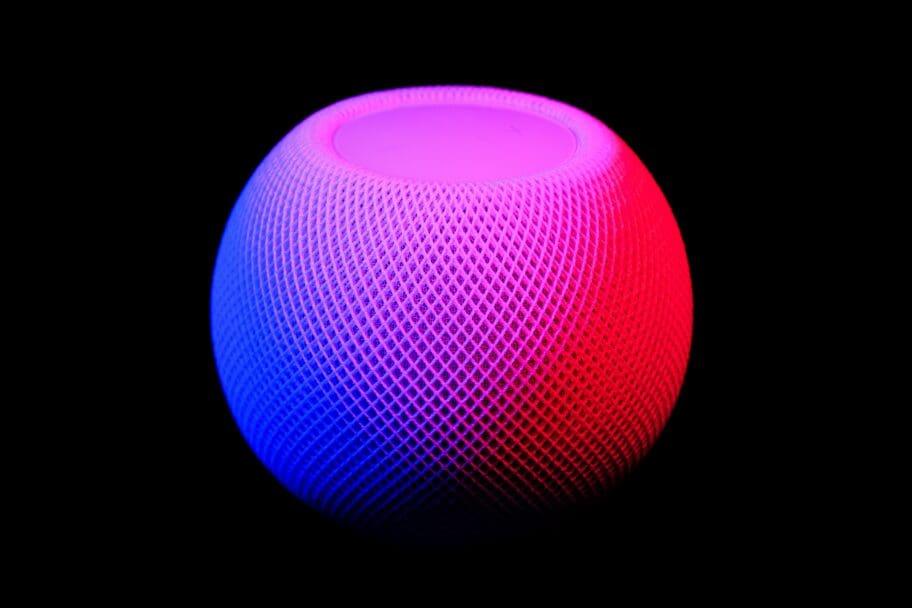Dear readers,
The advent of AI personal assistants, like chatbots and Google Home, utilizing speech recognition to interpret voice commands, has ushered in a new era of convenience and efficiency. Their role lies in streamlining tasks, thereby enhancing productivity. By shifting from manual to automated assistance, these digital helpers known as text assistants and virtual assistants are revolutionizing the way we interact with our devices. Personal AI assistants and AI virtual assistants are leading this digital transformation.
Virtual assistants and text assistants, like chatbot apps, employ AI's speech recognition to facilitate voice conversations, serving as a multipurpose integration into our daily routines. From taking notes to managing your onboarding experience, chatbot and text assistant integrations invite an intuitive interaction through natural language. These conversational AI and virtual assistants promote an intuitive interaction.
These AI systems, known as virtual assistants and text assistants, are bridging the technological divide. Transforming meetings and information exchange into a human-like feature, these chatbot apps are revolutionizing communication. Marketers understand the context of their task and take action accordingly - writing notes for meetings or setting reminders on their calendars as part of their function.

The rise of personal assistant AI, known as virtual assistants, is a testament to the remarkable progress in technology. These chatbot apps demonstrate how they can successfully mimic human conversation, respond appropriately, and manage tasks.
Evolution and Functionality of AI Assistants
Tracing Back the Inception
The creation of AI assistants by developers dates back to the day when artificial intelligence was just a budding concept for apps and task management. The early versions of virtual assistants were simple apps, offering basic features like setting calendar reminders or sending task-related emails based on voice commands. But as the field of AI advanced, so did these personal assistant tools, becoming a crucial task for developers creating SEO-optimized apps.
Nowadays, personal AI assistants and conversational AI, also known as virtual assistants, are equipped with advanced AI technology like machine learning and natural language processing. These advancements in personal ai assistants have not only made work more efficient for marketers, but also made the virtual assistant more user-friendly. Virtual assistant technologies, like conversational AI, now understand complex tasks and execute them effortlessly. These personal AI assistants are even becoming crucial for SEO strategies.
Evolutionary Stages
The evolution of personal assistant ai, like a calendar app, has been a journey from simple task execution such as scheduling a meeting to understanding user habits and preferences for improved SEO. Initially, these virtual assistant tools could only perform basic functions like copying based on pre-defined commands. However, with the advent of conversational AI, their capabilities have expanded, albeit at different pricing levels. Over time, conversational AI, like virtual assistants, evolved to understand voice commands better, even recognizing different accents and dialects. This improvement in SEO and copy understanding has been significant.
In their current form, these advanced SEO ai tools use machine learning algorithms to learn from user interactions with copy and content, influencing pricing strategies. Conversational AI adapts according to user habits, making personalized suggestions based on past SEO data, pricing trends, and calendar events.
Core Functionalities
AI assistants today offer a range of core functionalities:
-
Conversational AI and voice recognition: Understanding spoken language is a primary feature in writing content for the calendar.
-
Task execution: From setting alarms on your schedule to making reservations on your calendar, they can perform various tasks including pricing analysis and writing assignments.
-
Conversational AI learning capabilities: They learn from past calendar interactions, copy responses, and pricing queries for improved future responses.
-
Personalized recommendations: Based on past data, they can make tailored suggestions for the best music playlists, restaurants, content pricing or calendar events.
These calendar and content features, along with their code and pricing, make them an integral part of our daily lives.
Integration with Various Platforms
AI assistants aren't restricted to smartphones anymore; they've seamlessly integrated into various platforms, offering the best content, calendar features, and pricing options.
-
Home automation systems
-
Wearable devices
-
Car infotainment systems
This conversational AI integration makes it possible for users to access their digital calendar and content anywhere at any time, regardless of pricing.
Adaptability & Learning Capabilities
One major leap in the evolution of AI assistants is their ability to adapt over time, optimizing content and calendar management, adjusting to the best pricing strategies.
-
Memory retention: Remembering past requests for future reference.
-
Habit tracking: Understanding user habits for tailored responses.
-
Contextual understanding: Recognizing context in conversations for accurate responses.
This continuous learning makes them smarter with each interaction.
Shift from Voice Recognition To Intent Understanding
Initially, content and pricing were considered revolutionary in AI development but now there's a shift towards understanding the intent behind those voices, which is where the best natural language processing comes into play in the calendar of AI advancements.
-
This content allows machines to understand human language in its true essence, proving to be the best calendar tool with competitive pricing.
-
It interprets not just the best content words, but also emotions and intentions behind those words in the calendar.
This shift has transformed how we interact with our content on our devices - it's no longer about issuing commands on a calendar; it's about having the best, meaningful conversations.
To sum up this section without a conclusion per se - personal assistant AI, the best in content processing, has come a long way since its inception due to advancements in artificial intelligence technologies like machine learning and natural language processing. These developments have enabled these tools to carry out complex tasks while adapting over time through continuous learning mechanisms. This progress is leading towards an era where communication with machines will be as easy as talking to another human being, all managed on a streamlined calendar!
Personal Assistant AI: Productivity Enhancement Tools
Streamlining Daily Tasks
AI assistants, often referred to as text assistants or bots, are transforming the way we approach our daily tasks, including managing our calendar, organizing content, and identifying the best strategies. These calendar tools use advanced AI technology to automate routine content tasks, thereby significantly increasing productivity and delivering the best results. For instance, an SEO assistant can analyze your calendar content for the best search engine optimization, freeing up your time to focus on creating high-quality content.
-
Google Assistant can send emails and texts, make calls, set calendar reminders, control smart home devices, and even manage the best content.
-
Example 2: Amazon's Alexa, providing the best content, can play music, offer weather updates, answer questions, and control smart home devices.
Facilitating Multitasking through Smart Scheduling
Scheduling is another area where AI assistants shine. Whether it's setting up meetings or planning your day, these tools are equipped with smart scheduling features that help you manage the best content and juggle multiple tasks without missing a beat. A content scheduling assistant could sync with your best calendar app and remind you of upcoming events or deadlines.
-
Example 1: Apple's Siri can schedule meetings based on your availability, ensuring the best content for your calendar.
-
Example 2: Microsoft's Cortana, offering some of the best content, can set reminders for tasks due at specific times.
Enhancing Communication via Instant Responses
With instant response capabilities, AI writing assistants have revolutionized the best content communication in the digital age. They offer the best quick replies to content queries which saves time and enhances productivity. Moreover, they enable efficient communication with customers by providing immediate content assistance round the clock.
-
Example 1: Chatbots on websites provide immediate responses to customer queries.
-
Example 2: Social media bots respond instantly to comments or messages from users.
Reducing Human Error Through Automation
Automation is one of the key features of AI writing assistants that helps reduce human error significantly. By taking over repetitive tasks like data entry or proofreading content for errors and inconsistencies, these tools ensure accuracy while saving valuable time.
For example:
-
Grammarly uses AI technology to detect grammatical errors in text.
-
Autocorrect features in word processors automatically correct spelling mistakes as you type.
Saving Time by Handling Routine Tasks Efficiently
One of the biggest advantages of using an AI assistant is its ability to handle routine tasks efficiently thereby saving precious time that could be used more productively elsewhere. From organizing emails based on priority to managing social media posts – these tools take care of mundane chores so you don’t have to.
For instance:
-
Google Assistant can sort out your inbox by categorizing emails into different folders.
-
Buffer allows scheduling social media posts across various platforms at once.
Enabling Focus on Strategic Tasks by Managing Administrative Duties
By managing administrative duties such as booking appointments or managing files and documents – AI assistants free up time allowing individuals and businesses alike to focus more on strategic tasks that require critical thinking skills rather than getting bogged down with mundane chores.
Consider this:
-
Dropbox’s document scanner feature uses machine learning algorithms for optical character recognition (OCR) turning photos into searchable PDFs.
-
Meekan Scheduling Assistant syncs with calendars across multiple platforms and suggests meeting times based on mutual availability.

AI Virtual Assistants: A Comparative Overview
Popular AI Assistant Models
AI virtual assistants have become a staple in many homes and workplaces. Among the top contenders are Siri from Apple, Alexa by Amazon, and Google's very own Google Assistant.
-
Siri: Known for its seamless integration with Apple devices, Siri excels in tasks such as setting reminders or sending messages.
-
Alexa: Alexa shines with home automation capabilities. It can control a wide range of smart home devices and has an extensive list of skills that can be enabled.
-
Google Assistant: This AI voice assistant stands out for its superior search capabilities. Its ability to look up information quickly and accurately is unmatched.
Unique Features Across Models
Each virtual assistant has unique features that set it apart:
-
Siri allows users to send texts without picking up their device.
-
Alexa offers a diverse range of skills like ordering pizza or playing trivia games.
-
Google Assistant provides real-time answers to queries, thanks to Google’s vast search engine.
User Experience Across Platforms
User experience varies significantly across platforms:
-
Siri's simplicity makes it popular among Apple loyalists.
-
Alexa's compatibility with a wide array of devices gives it an edge in versatility.
-
Google Assistant's omniscient search capabilities make it the go-to choice for users who prioritize information retrieval.
Adaptability and Compatibility With Other Devices
In terms of adaptability:
-
Siri works best within the Apple ecosystem.
-
Alexa supports a broad spectrum of third-party devices.
-
Google Assistant works seamlessly across Android devices and also supports various smart home gadgets.
For compatibility:
-
Siri is limited to Apple products but performs exceptionally within this range.
-
Alexa boasts compatibility with thousands of third-party smart home devices.
-
Google assistant maintains balance, performing well both on Android devices and numerous smart home gadgets.
|
Siri |
Alexa |
Google Assistant | |
|---|---|---|---|
|
Adaptability |
Limited |
Wide Range |
Extensive |
|
Compatibility |
Apple Only |
Most Devices |
Android + Smart Home |
Performance Based on Task Execution Speed and Accuracy
Performance varies based on task execution speed and accuracy:
-
Siri executes tasks promptly but sometimes struggles with comprehension, affecting accuracy.
-
Alexa performs well overall but occasionally lags behind when processing complex commands quickly.
-
Google Assistant consistently delivers high-speed responses with remarkable accuracy due primarily to its robust search algorithm.
Market Share Based on User Preference
The market share fluctuates based on user preference:
-
As per last month's statistics, Siri holds the largest market share due to its integration into every iPhone sold worldwide
-
Alexa follows closely behind due to its affordable pricing strategy for Echo Dot speakers
-
Despite being late entrants into the personal assistant ai race, Google has managed steady growth over the past year thanks mainly to their superior search capabilities.
Remember that individual preferences may vary widely based on specific needs; hence these rankings should serve as guidelines rather than definitive judgments about each product's worthiness.
Implications of AI Assistants’ Usage
Privacy Concerns
Personal Assistant AI's have revolutionized our daily lives, offering actionable insights to streamline tasks. However, they raise significant privacy concerns due to the vast amounts of data collected. These AI systems often require access to personal information, such as emails, contacts, and location history. This data is used to provide personalized assistance but also presents potential risks:
-
Unauthorized access or data breaches could expose sensitive information.
-
Companies may use this data for targeted advertising or sell it to third parties.
Job Market Impact
AI assistants' automation capabilities can significantly impact the job market. While they bring efficiency and productivity benefits, there's a looming threat of job displacement. For instance:
-
Receptionists and administrative roles may be replaced by AI assistants that can schedule appointments and manage calendars.
-
Customer service representatives might face competition from AI chatbots providing instant responses.
However, these changes also create opportunities for new roles centered around developing and maintaining these AI systems.
Misuse Risks
The misuse or manipulation of Personal Assistant AIs poses another significant concern. The open nature of these tools allows for potential exploitation:
-
They could be programmed to perform illegal activities.
-
Cybercriminals may manipulate them into revealing sensitive user information.
These risks highlight the need for robust security measures and ethical guidelines in their development and usage.
Dependency Issues
Excessive reliance on Personal Assistant AIs can lead to dependency issues. The convenience they offer might make users overly reliant on technology for simple tasks:
-
People may become less self-reliant in managing their schedules or remembering important information.
-
Over-dependency could lead to difficulties when technology fails or isn't accessible.
This calls for a balanced approach in using AI assistants without compromising essential life skills.
Accessibility Challenges
While Personal Assistant AIs aim to simplify tasks, accessibility challenges exist for certain demographics:
-
Older adults may struggle with understanding how to use these tools effectively.
-
Individuals with disabilities might find some features inaccessible due to lack of inclusive design.
Addressing these challenges requires continuous efforts towards making technology more inclusive and user-friendly.
Health Impacts
Lastly, prolonged exposure to Personal Assistant AIs has potential health implications that warrant further exploration:
-
The constant interaction with screens could lead to vision problems or sleep disturbances.
-
Physical health might be impacted due to reduced physical activity levels when relying heavily on digital assistance.
Thus, while the advent of personal assistant AIs offers numerous benefits, it's crucial we remain cognizant about their potential implications on various aspects of society – from privacy concerns through job market impacts and misuse risks down towards dependency issues plus accessibility challenges right up until health impacts – ensuring safe and responsible usage at all times.

AI in Project Management Optimization
Planning and Resource Allocation
Project management is a complex task that involves juggling various resources, tasks, and timelines. The use of personal assistant ai like alli ai, can significantly enhance the planning phase of projects. AI has the capability to analyze past project data and predict the optimal allocation of resources for future projects. For example, it can predict how many team members should be allocated to a specific task or what marketing strategies will yield the best results. This predictive ability not only improves efficiency but also reduces waste.
Moreover, AI can automate scheduling tasks which are often time-consuming and prone to human error. An AI calendar can handle multiple schedules simultaneously, ensuring that no conflicts arise and deadlines are met. This automation allows project managers to focus on more strategic aspects of their role.
Risk Assessment
Another crucial aspect of project management is risk assessment. Traditionally, this process relied heavily on human judgment which was susceptible to bias and errors. Today, with the advent of AI technology, project managers have access to predictive analysis tools that provide data-driven insights into potential risks.
These tools analyze historical project data as well as real-time information from ongoing projects to predict potential roadblocks or delays. They also offer suggestions on how best to mitigate these risks based on past successful strategies. The result? Improved quality plans and a higher success rate for your projects.
Team Collaboration
AI has revolutionized team collaboration by introducing intelligent bots into the mix. These bots facilitate communication among team members by providing instant responses to queries or concerns raised during a project's lifecycle.
For instance, if a team member needs clarification about an aspect of the free plan being implemented in a SEO campaign they're working on; an intelligent bot could instantly provide them with relevant information from previous similar campaigns - saving time spent searching through old emails or documents.
Progress Tracking
Keeping track of progress in any project is vital for its successful completion. With AI technology, this process becomes automated leading to better control over projects' progression.
AI systems can monitor each stage of a project and alert managers when milestones are reached or missed - enabling quick action if necessary. They can generate comprehensive reports detailing overall performance against set targets - providing valuable insights into areas that require improvement.
Continuous Improvement
Machine learning algorithms enable continuous improvement in managing projects by learning from past successes and failures. By analyzing patterns in historical data such as completed tasks or achieved milestones; these algorithms identify effective strategies that can be replicated in future projects.
This continual learning process ensures your project management approach remains dynamic - adapting according to new challenges or changes within your organization's environment for maximal effectiveness.
Decision-making Process
Finally yet importantly, leveraging personal assistant ai helps boost decision-making processes within project management by offering data-driven insights derived from large volumes of data collected over time across various parameters related to your projects – such as budget utilization rates or employee productivity levels – giving you an edge when making critical decisions regarding resource allocation or timeline adjustments.
Future of AI Personal Assistants
Speech Recognition Progress
Expectations about advancements in AI personal assistants are high, particularly in the area of speech recognition technology. This is not surprising considering how conversational AI has been transforming our interactions with devices. For instance, Google Home and other smart home systems have already made significant strides in understanding and responding to user commands. However, we can anticipate even more impressive leaps forward.
-
Improved accent recognition: Personal ai assistants will likely become adept at understanding a wider range of accents, making them accessible to more people worldwide.
-
Enhanced contextual understanding: AI voice assistants are expected to get better at interpreting the context of user requests, leading to more accurate responses.
-
Advanced emotion detection: Future ai personal assistants may be able to detect users' emotions from their tone of voice and respond accordingly.
Integration Possibilities
AI personal assistants are also set for broader integration into various aspects of life. Here's a look at some potential areas:
-
Healthcare: From setting medication reminders to providing health advice based on symptoms described by users.
-
Education: Assisting students with learning through interactive lessons or helping teachers manage administrative tasks.
-
Transportation: Enabling hands-free navigation and vehicle control in self-driving cars.
These examples barely scratch the surface; the possibilities are virtually limitless.
Customization Options
Personalization is another area where we can expect significant improvements. Currently, most personal assistants offer basic customization options like changing the assistant's voice or adding specific routines. In the future, however, these options could become far more sophisticated:
-
Personality customization: Users might be able to adjust an assistant’s personality traits (e.g., humor level) for a more personalized interaction.
-
Proactive assistance: AI personal assistants might learn user habits over time and proactively offer help before it's asked for.
Anticipated Challenges
However, this bright future isn't without its challenges:
-
Ethical considerations: As chatbots become smarter and more prevalent, questions about privacy and consent will inevitably arise.
-
Security concerns: The increased integration of ai personal assistants into daily life could make them attractive targets for hackers.
-
Societal impact: Widespread adoption could lead to shifts in societal norms regarding human-machine interactions.
Growth Trends
Based on current usage patterns, growth trends for ai voice assistants look promising:
|
Year |
Number of Users (in millions) |
|---|---|
|
2020 |
100 |
|
2021 |
120 |
|
2022 |
Predicted 140 |
Given these numbers, it's clear that acceptance and use of such technology is on a steady upward trajectory.
AI Revolutionizing Small Business Operations
The transformative power of AI personal assistants is evident in their ability to streamline operations and enhance productivity for small business owners. These digital tools not only simplify routine tasks but also provide valuable insights that drive strategic decision-making. Leveraging the capabilities of AI assistants can enable small businesses to compete effectively in today's dynamic marketplace.
As we look to the future, the role of AI personal assistants will continue to evolve, offering even more sophisticated functionalities. The potential for further optimization in areas like project management is immense. Thus, it's crucial for SMB owners to stay abreast with these advancements and adapt accordingly. Now is the time to embrace this technology and harness its benefits for your business.
FAQ
FAQ 1: How can an AI assistant help my small business?
AI assistants can automate repetitive tasks, manage schedules, provide real-time data analysis and insights, which all contribute towards enhancing productivity and efficiency in your business.
FAQ 2: Are there different types of AI personal assistants?
Yes, there are various types such as voice-activated virtual assistants like Siri or Alexa, chatbots for customer service, and specialized tools designed for specific industries or functions.
FAQ 3: What factors should I consider when choosing an AI assistant?
Consider your specific needs and objectives. Evaluate features offered by different products including ease of use, integration capabilities with existing systems, customization options and cost.
FAQ 4: How secure are AI personal assistants?
While most providers prioritize security measures such as encryption and user authentication protocols, it's important to review their privacy policies before making a decision.
FAQ 5: Can an AI assistant replace my human staff?
No, they're meant to complement human efforts by taking care of routine tasks thus freeing up staff time for higher-value work that requires human intelligence and creativity.

Article by
Titus Mulquiney
Hi, I'm Titus, an AI fanatic, automation expert, application designer and founder of Octavius AI. My mission is to help people like you automate your business to save costs and supercharge business growth!

